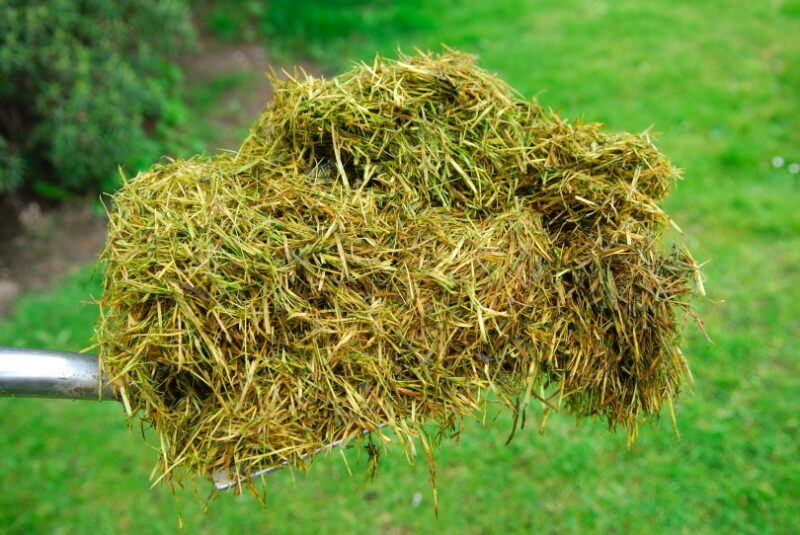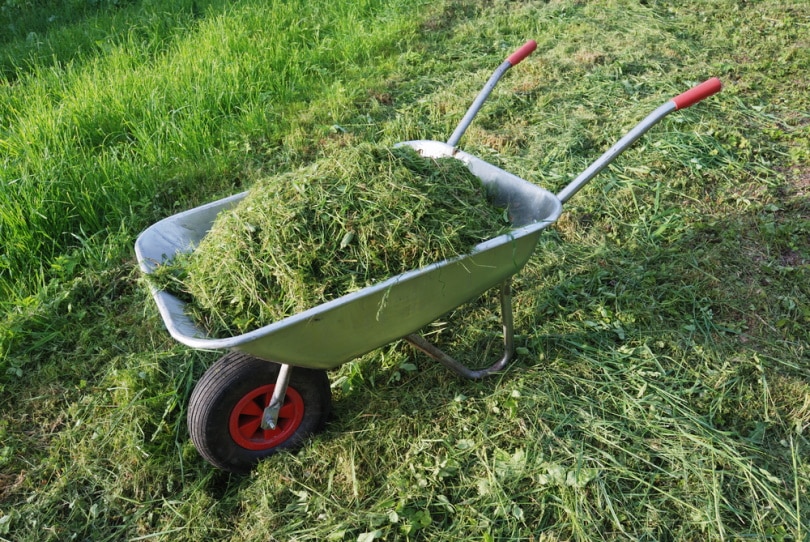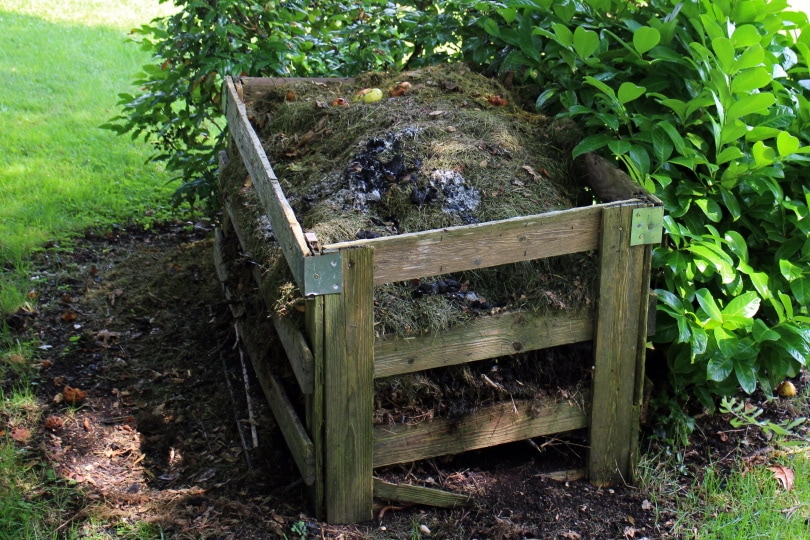Can You Compost Grass Clippings? Does It Help Compost?
-
Codee Chessher
- Last updated:

If you have grass, you’re probably familiar with the large piles of grass clippings left over when you finish mowing. Most people just throw it away with their trash, but did you know that grass clippings are excellent for compost? It’s true! Grass clippings are one of the best things you can add to your compost because they contain large amounts of nitrogen.
Let’s check out how you can use grass to feed your compost, as well as other essential tips to make the most of your compost.
How Do Grass Clippings Help Compost?
Compost requires infusions of both brown and green material for proper decomposition, the latter of which includes grass clippings. The key here is to remember that healthy compost needs both carbon from brown material and nitrogen from green material.
A ratio of 3 to 4 parts brown material to 1 part green material works as a rule of thumb, but there’s no perfect ratio. Some brown material contains more carbon than others, and some green material contains more nitrogen than others.
Green material helps the soil-dwelling microorganisms in the compost break down matter, and the brown material serves as food or fuel for those microorganisms.

Freshly trimmed grass clippings from a healthy lawn are green material. Dried grass would technically be brown material, so bear that in mind when thinking about what to add to your compost.
While it’s tempting to just chuck all your grass clippings in the compost, you have to consider whether the compost needs more green or brown material, or perhaps both. If there’s an excess of green material in the bin, it risks fire because of excessive nitrogen.
Conversely, too much brown material means the compost won’t decompose. Also, a lack of green material will lead to the compost appearing lifeless. Healthy compost should have worms, fungus, and other signs of life.
How to Tell if You Need Green Material in Your Compost
It’s far more common to overload compost with green material than brown, but it’s a mistake to add too much of either.
- If brown material isn’t breaking down in a timely manner. Without nitrogen from green material, the compost will struggle to break down matter in the compost.
- If the compost is dry. Healthy compost should be damp to the touch as a result of the composting process. Dry compost means nothing is getting broken down.
- If there are no worms, fungi, or other life. Healthy compost attracts bugs and fungi, which help accelerate and supplement the composting process. If it’s a new compost pile, give it some time before expecting bugs and fungi.

When Should I Not Use Grass Clippings for Compost?
You shouldn’t add grass clippings to compost if you already have an abundance of green material without enough brown material. There are a few ways you can tell if you need more brown material in your compost, and under these circumstances, you shouldn’t add lawn clippings. Rather, keep them bagged up to use later.
- If your compost is excessively hot. Too much heat in the compost risks fires, especially if there’s fire or sparks nearby, like when you’re having a backyard barbeque.
- If the compost starts to smell like sewage, ammonia, or any other strong odor. Healthy compost should smell like dirt, and strong odors signal a lack of brown material.
- If the compost is too wet, you need to stop adding material to the compost and aerate it. Use a pitchfork or rake to mix up the compost, then allow it to rest. Check it again in a week or so before adding more green material.

Related Read: Can You Compost Cheese? What You Need to Know!
Conclusion
Compost needs a healthy balance of green and brown material to break down correctly, and grass clippings are an excellent example of green material. They add much-needed nitrogen to the compost and help it break down brown material. Too much green has its downsides, however, so be mindful of what you add to your compost.
Featured Image Credit: Ian Francis, Shutterstock
Contents
